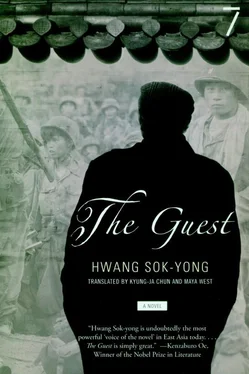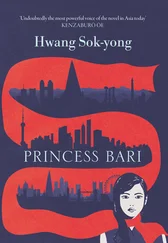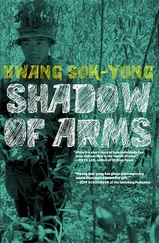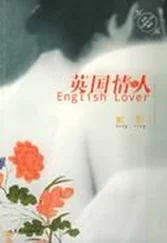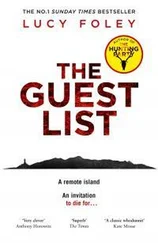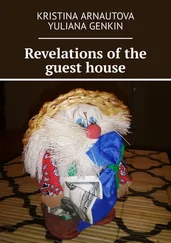Actually, you, Yohan, you put it quite well. Both sides were in the wrong at Sinŭiju. Whenever times get confusing, you know, all the sleazy con men come out of the woodwork. A lot of the Communists, all they did was offer lip service, and since Sinŭiju is a border city it was full of people who’d made their living by kissing Japanese Imperialist ass. There were a ton of you churchgoers, too — they don’t call Sinŭiju the Jerusalem of Chosŏn for nothing. There never were a lot of tenants in that area, just lots of traders and landed farmers. Everyone was pretty well-to-do, so there were plenty of schools, lots of students. Anyway, those who claimed to be Communists may have made the blunders, shooting their guns like that, but you churchgoers have got to admit — you did egg them on.
You guys may have had no idea what anti-trusteeship and pro-trusteeship was all about, but we studied it systematically — we knew it through and through. You know and the whole world knows that America and Russia are both just full of big noses. Their official goal was eliminating the “temporary military measure” of the thirty-eighth parallel and supporting Chosŏn’s bid for independence, but the truth is, what they really wanted was to gobble up the entire peninsula — neither one was willing to settle for half. Trying to reduce Russia’s influence to a fourth of what it was, the Americans tried siding with China and England. Russia, though — Russia maintained confidence in the people of her former colony and changed the proposition at the Moscow Conference to help establish the Chosŏn Provisional Democratic Government. They said officially that Chosŏn should be an independent nation. It was all or nothing for a while, but then the Americans and Russians decided to compromise, at least for the time being. Depending on how we did, we could always use the foreign powers to unify our country three years down the line. You people keep wanting things to be either good or evil, but our philosophy is that reality is what matters most. You chose to be idealistic and went for anti-trusteeship, but we were pro-trusteeship. The American military government based in South Korea assessed the situation and decided to begin by securing the South. Pretty soon their propaganda was everywhere, claiming that Russia was for the trusteeship while America was against it. By then, even the anti-Japanese faction was divided about trusteeship. I still remember what the insider documents used to say in those days:
“We must commit ourselves to the class struggle ever more forcefully. All known Rightists are pro-Japanese, landowners, capitalists and puppets controlled by America, other enemies of the People, and reactionaries in the South. A democratic base must be established in the North in order to demolish the foreign powers and other enemies of the class. All arable land and forests in the possession of Japanese and Chosŏn landowners, traitors of the people, must be nationalized. With the introduction of land reform, the tenant system must be abolished and the land freely distributed to farmers.
In January, the farmer’s off-season, each district received instructions to select a representative for the farmers and send him to Pyongyang. The notice said that the class principle had to be observed in the selection, too. Each district chose, as they understood they should, from the tenants, servants, and daily laborers, and those representatives were sent up to the central government. Illang was selected to be Ch’ansaemgol’s representative, so he went on up to Pyongyang. When the provisional People’s Committee was first formed, I, too, went up to the central government to attend training sessions on founding local Party cells. The issue we all thought about most was class struggle. And then the Independence Day incident broke out. Our political position on the issue was simple.
Democratic social reform in the North had to be carried out under conditions of violent class struggle. The disintegrated landowner class and the Japanese collaborators, the remnants of the bourgeoisie and bureaucrats, the institution of the Church and a number of specific Protestant ministers who had long been on intimate terms with foreign missionaries and were none other than the harbingers of American invasion were identified as the reactionary powerhouses of the country. These categories often overlapped, and the most readily identifiable common element was Christianity.
You know, in the old days, if you went to the marketplace and entered a pottery shop, you’d probably have seen a malformed pot or two. The irregularities happen after the lump of clay has been formed into a pot, probably from some mistake in the drying process. Anyway, in the end, what you’ve got was a defective pot. These pots, they were never thrown away — they just got sold for half the price. The nicely shaped, well-made pots cost several times more. Really rich folk would even buy ceramics that had colored glazes and elaborate designs. The defective pots were for the poor. Placed in a sunny spot in a three-room, straw-thatched hut, they would be used to keep soy sauce or kimchi, food you saved to eat during the long winter days. You know, even when a poor family somehow moved on up in the world, they always held on to those ugly pots, passing them down as family heirlooms.
You see, the poor people and needy farmers of Chosŏn — they were the ugly pots, bashed in by the Japanese. To hold them up, to display them as something precious — that’s been the position of our class. You people, you people just want to smash them to bits and be rid of them.

At first we had no idea what was happening to our village. We were still hiding out in the mud dugout because of what happened at Sŏbu Church in Chaeryŏng. Myŏngsŏn and her younger sister, Chinsŏn, would take turns bringing us food. One day, Myŏngsŏn came and told us someone wanted to meet us. It turned out to be Pongsu, the oldest son of the man who owned the rice mill in town. He’d graduated from a commercial high school in Pyongyang, where he ran a huge general store that bought and sold local products. Then, during the Japanese occupation, he moved back home. He’d been there in his hometown when the country was liberated. He was known for being generous with his money, and the man could definitely hold his liquor — on the other hand I guess some might have called him a libertine or a womanizer. Sangho and I knew him from when we were kids. He moved up to Pyongyang right after he graduated from elementary school, but he always came down for vacations. We were never really that close, but when we joined the Democratic Party and formed the Youth Corps after liberation, he became a leader among the young men in town. When Myŏngsŏn brought us his message, he was already on the run — he’d had a hand in the raiding and burning of the People’s Committee office. We’d just assumed he’d run to Pyongyang or Haeju. Sangho and I left the dugout and made our way to the funeral house on the outskirts of the village. It was an open shed on the hillside where they stored the funeral bier, near the three-way fork in the main road. As we groped our way along in the dark, we heard someone clearing his throat.
Is that you, Pongsu?
Yeah, come on up.
It was so dark inside the funeral house that we couldn’t see a thing. Pongsu struck a match and lit a candle. It was a pathetic stump of a candle stuck to a wooden shelf. Wearing a suit and standing next to a packed knapsack, Pongsu turned to us.
I hear you guys went to Chaeryŏng and raised hell — that right? If we’re going to establish a nation of God, we’re going to have to chase out every last Commie bastard.
The boys from the peacekeeping troops are swarming all over the place out there, red in the eyes, saying they’re gonna get you! What the hell are you doing here?
Читать дальше
